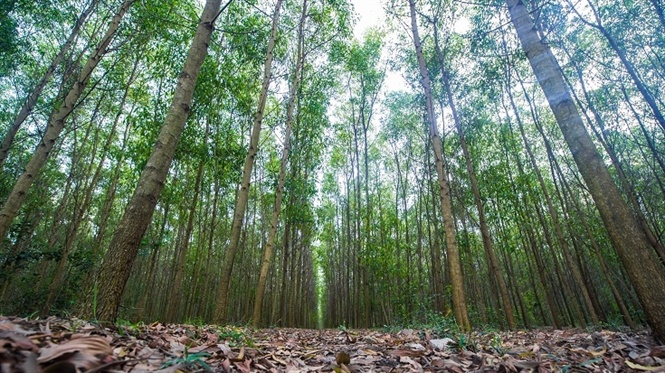May 29, 2025 | 10:19 GMT +7
May 29, 2025 | 10:19 GMT +7
Hotline: 0913.378.918
May 29, 2025 | 10:19 GMT +7
Hotline: 0913.378.918

These new projects will help conserve over 950,000 hectares of forested area across 12 provinces in Vietnam. Healthier, fuller forests, coupled with strong biodiversity, is critical to reducing greenhouse gas emissions.
The Sustainable Forest Management project, implemented by DAI Global, will reduce carbon emissions from deforestation, forest degradation, and poor timber plantation management practices in seven provinces.
The project is expected to strengthen Vietnamese law enforcement’s ability to combat forest crimes such as illegal logging; improve the livelihoods of 60,000 people in forest-dwelling communities; and strengthen the management of more than 250,000 hectares of forest.
The Biodiversity Conservation project, implemented by The World Wildlife Fund, will protect critical ecosystems to build resilience against the impacts of climate change; maintain and increase forest quality; and protect and stabilize wildlife populations. The project is expected to improve the ability of community patrol teams to detect and deter wildlife trafficking; improve economic opportunities for forest-dependent communities; and strengthen the management of 700,000 hectares of forest.
These activities build upon over a decade of USAID’s partnership with the Government of Vietnam, the private sector, and other partners to protect forests and biodiversity, counter wildlife trafficking, and curb environmental pollution to mitigate the effects of climate change.
/2025/05/25/4127-3-073637_820.jpg)
(VAN) Thanks to the promotion from an FAO-implemented project, vegetable production in greenhouses in Moc Chau has seen strong development, from 1.5 hectares in 2021 to nearly 50 hectares in 2024.

(VAN) FAO has recently supported USD 140,000 to implement the project 'Risk mitigation human-animal interface risks through disease control initiatives in pig farming.'

(VAN) The People's Committee of Tra Vinh province has approved an adjustment to the investment policy for the Green Hydrogen Plant project, increasing its area to approximately 52.76 hectares.
![Reducing emissions from rice fields: [2] Farmers’ commitment to the soil](https://t.ex-cdn.com/nongnghiepmoitruong.vn/608w/files/news/2025/05/05/dsc08881jpg-nongnghiep-140632.jpg)
(VAN) Clean rice cultivation model in Thuong Tan commune, Bac Tan Uyen district, is assisting local residents in achieving sustainable agriculture by substantially reducing costs, increasing productivity, and protecting the environment.

(VAN) At the conference to disseminate Resolution No. 68, AgriS introduced its digital agricultural ecosystem and reaffirmed its commitment to accompanying the Government in promoting private sector development and sustainable agriculture.

(VAN) 'Blue Ocean - Blue Foods' initiative is designed to restore marine ecosystems and establish sustainable livelihoods for local communities by cultivating a minimum of 1,000 hectares of cottonii seaweed in the first three years.
/2025/05/21/4642-3-112707_603.jpg)
(VAN) The V-SCOPE project has made direct contributions to three out of six pillars of the Comprehensive Strategic Partnership between Vietnam and Australia.